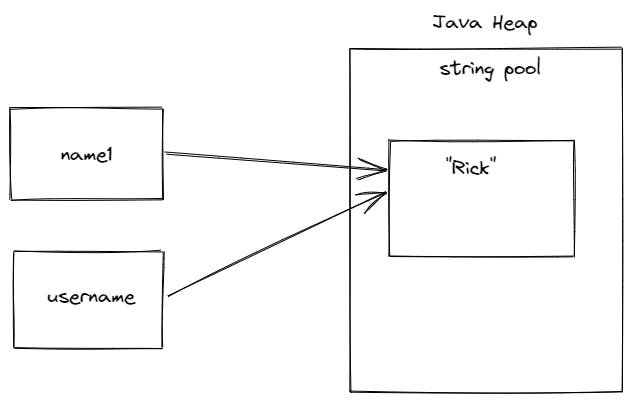Why Are Strings Immutable in Java? Safety And Security and Performance Perks
Why Are Strings Immutable in Java? Safety And Security and Performance Perks
Blog Article
What Is Immutable Strings and Just How It Functions
In the realm of programs, understanding the idea of unalterable strings is vital for creating safe and durable applications. Immutable strings describe strings that can not be changed after they are produced, making certain data honesty and predictability within the code. This fundamental principle plays a critical function in various programs languages and supplies a special strategy to dealing with information. By checking out the complexities of how immutable strings function, one can discover a world of advantages and possibilities that can elevate the top quality and efficiency of software development.
The Fundamentals of Immutable Strings
Unalterable strings, as a fundamental idea in shows, are personality sequences that can not be transformed when they are produced. This indicates that once a string is assigned a value, that worth can not be altered. In languages like Python and Java, strings are unalterable items, leading to numerous effects in regards to memory administration and information integrity.
One of the vital benefits of unalterable strings is that they provide a sense of safety in data adjustment. Since the content of an immutable string can not be modified, it makes sure that the original data stays undamaged, reducing the threat of unplanned modifications during program execution (Why are strings immutable in Java?). This residential or commercial property also simplifies debugging procedures, as developers can trust that once a string is defined, its value will certainly not be unintentionally changed
When a brand-new string is created based on an existing one, rather than changing the initial string, the new worth is kept independently. Overall, understanding the essentials of immutable strings is critical for mastering shows ideas and maximizing code effectiveness.
Advantages of Unalterable Strings
Structure upon the protection and performance advantages of immutable strings, their advantages prolong to improving code reliability and streamlining concurrent programming tasks. By being unalterable, strings can not be modified after creation, which eliminates the risk of unexpected changes in the data they save. This integral immutability makes certain that as soon as a string is created, its worth stays continuous throughout the program's execution, decreasing the chances of bugs triggered by unforeseen changes.
In addition, immutable strings add to code integrity by making it simpler to reason concerning the state of a program. Because strings can not be changed, programmers can rely on that a string will constantly hold the exact same value, streamlining debugging and upkeep efforts. This predictability results in extra stable and reputable codebases.

Execution in Programming Languages
Within different shows languages, the unification of immutable strings is an essential facet that influences how data is handled and adjusted within code frameworks. The implementation of immutable strings differs across various programming languages, with each language providing its very own mechanisms to sustain this idea.

On the other hand, languages like C and C++ do not have integrated support for immutable strings. Developers in these languages must manually execute immutability by imposing regulations within their code to prevent straight alterations to string items.
Finest Practices for Dealing With Immutable Strings
When taking care of unalterable strings in programming languages like Java and Python, adhering to ideal practices makes sure protected and effective data adjustment. One of the crucial finest practices is to make use of StringBuilder or StringBuffer as opposed to straight adjusting strings, specifically when dealing with extensive concatenation procedures. These courses offer mutable choices for string control, aiding to avoid unnecessary memory allowances and boosting efficiency.
In addition, when working with delicate information such as passwords or API secrets, it is crucial to stay clear of saving them as ordinary message in her latest blog immutable strings. look at here now Using safe and secure storage mechanisms like char ranges or specialized collections for handling sensitive info assists minimize safety threats associated with unalterable strings.
Real-world Applications and Examples
Discovering sensible implementations of immutable strings in numerous industries reveals their significant effect on data integrity and system reliability. In the healthcare sector, immutable strings play an important function in ensuring the safety and security and privacy of person data. By stopping unapproved modifications to sensitive info such as clinical records and prescriptions, unalterable strings assist maintain conformity with stringent privacy regulations like HIPAA.
Monetary organizations likewise gain from the immutable nature of strings to improve the safety of consumer data and transaction records. Immutable strings help stop fraud and unapproved modifications to economic information, giving a robust defense versus cyber risks and ensuring the trust fund and confidence of clients.

Final Thought
Finally, immutable strings are repaired and stable sequences of characters that offer find out here advantages such as string safety and security and improved efficiency in shows. They are applied in various programming languages to make sure data integrity and protection. Ideal practices for working with unalterable strings consist of staying clear of direct alterations and using techniques that return new string things. Real-world applications of unalterable strings consist of data security, caching, and string manipulation jobs.
Immutable strings refer to strings that can not be modified after they are developed, making sure data honesty and predictability within the code. When a new string is developed based on an existing one, rather than modifying the original string, the brand-new worth is stored individually.In languages like Java and Python, strings are immutable by default, implying that once a string things is created, its value can not be changed - Why are strings immutable in Java?. Ideal methods for functioning with unalterable strings include preventing straight adjustments and using approaches that return brand-new string objects. Real-world applications of unalterable strings include information encryption, caching, and string adjustment jobs
Report this page